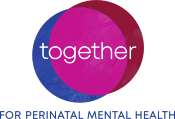By Sophie
As someone who lives with stage four bilateral endometriosis, I am no stranger to anxiety and depression. My journey to motherhood was fraught with surgery, clinical appointments, loss, risk in pregnancy, a slow postpartum recovery, and breastfeeding challenges. All these experiences, on top of my daily struggle with chronic pain led to an even more stressed mental state.
After the births of my son (now 7) and daughter (now 1), I struggled to cope. Even though I had access to a trusted counselor, loving partner, supportive family, and friends, I struggled. Still today, the demands of my disease and the NEED to care for my own body, are often at war with the needs of my children. I am learning that you can have all the support in the world, and still struggle with your mental health.
I often think: “If only I try harder, do more, I can push past the way I am feeling”. The truth is, we need to feel these feelings, with the right supports in place. We need to hold them close, not push them away. In fact, we may never push past the way we are feeling. Mental health isn’t about getting over something, it’s about learning to live safely with the what ifs, the down days and the panic.
The challenges around motherhood are deeply systemic, starting at the beginning, with how those of us with reproductive-related disease are treated in the health system, how postpartum bodies are NOT supported and how women are often expected to put aside their needs for EVERYONE else.
My story comes from a place of privilege. I am a cis-gender white woman surrounded by friends and family who support me. Imagine the postpartum experience of those who aren’t in the same position. I’m not yet out of the darkness. Some days are tough, and I want to be someplace else. I often wonder if I made the right choice having children. Is it supposed to be this hard? Or is it just hard for me? While I may not love being a mom every day, I do love my kids, and that is what matters most.
